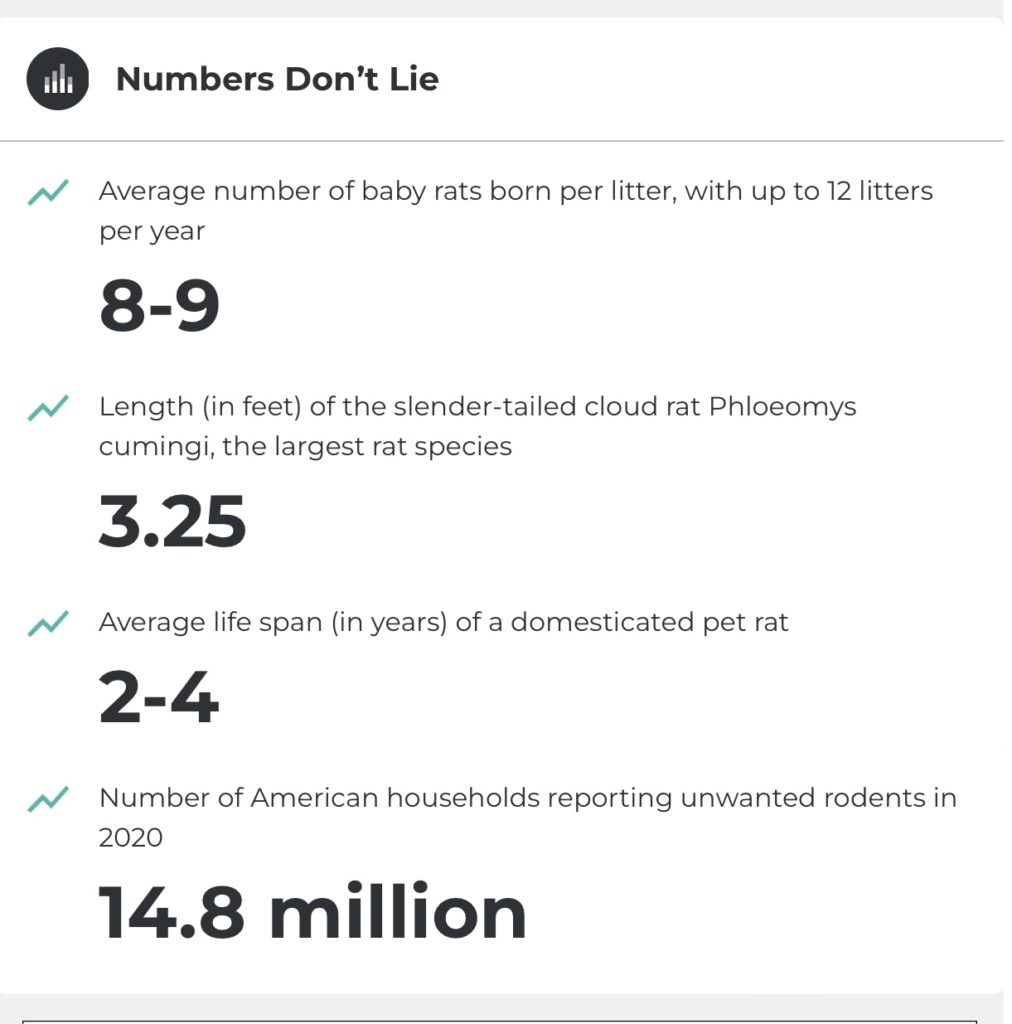Most rats live their lives entirely unseen by humans. As kings of the background, they often scurry through human environments just out of sight or after dark, looking for leftover morsels. But researchers believe rats might not just be picking up our food crumbs — they could also be picking up on the beats in our music. A study published in 2022 suggests rats may have a humanlike sense of rhythm, which they express by bopping their heads to the beat. Scientists once believed that few animals were beat-sensitive (aside from some birds), but rats exposed to music made microscopic head movements that were picked up by tiny, wireless motion detectors. The researchers hypothesized that rats would prefer faster jams thanks in part to their rapid heartbeats, though surprisingly, lab rats synced up best with music in the 120 to 140 beats-per-minute range — just like humans.
Humans have long wondered if animals respond to music the way we do. Charles Darwin’s studies examined the relationship between animals and music, believing rhythm could be found throughout nature and may have been the precursor to music. Today, some experts believe only certain species have the ability to really respond to changing beats — notably bats, birds, dolphins, and elephants, which all have the complex ability to learn and repeat new sounds. However, some studies show other animals interact with music, too; one experiment found that pigs exposed to certain music became playful and wagged their tails. Many farmers report their cows are calmer when the radio is on, with a supporting study reporting that dairy cows produce 3% more milk while listening to slow tunes (fast music had no effect). When it comes to our best pet companions, music is known to soothe anxious dogs in shelters and adoption centers, though felines — known for being a bit finicky — couldn’t care less about human music. However, they do respond positively to tailored tunes that use beats and frequencies similar to their own meows.
Most rats live their lives entirely unseen by humans. As kings of the background, they often scurry through human environments just out of sight or after dark, looking for leftover morsels. But researchers believe rats might not just be picking up our food crumbs — they could also be picking up on the beats in our music. A study published in 2022 suggests rats may have a humanlike sense of rhythm, which they express by bopping their heads to the beat. Scientists once believed that few animals were beat-sensitive (aside from some birds), but rats exposed to music made microscopic head movements that were picked up by tiny, wireless motion detectors. The researchers hypothesized that rats would prefer faster jams thanks in part to their rapid heartbeats, though surprisingly, lab rats synced up best with music in the 120 to 140 beats-per-minute range — just like humans.
Most rats live their lives entirely unseen by humans. As kings of the background, they often scurry through human environments just out of sight or after dark, looking for leftover morsels. But researchers believe rats might not just be picking up our food crumbs — they could also be picking up on the beats in our music. A study published in 2022 suggests rats may have a humanlike sense of rhythm, which they express by bopping their heads to the beat. Scientists once believed that few animals were beat-sensitive (aside from some birds), but rats exposed to music made microscopic head movements that were picked up by tiny, wireless motion detectors. The researchers hypothesized that rats would prefer faster jams thanks in part to their rapid heartbeats, though surprisingly, lab rats synced up best with music in the 120 to 140 beats-per-minute range — just like humans.





